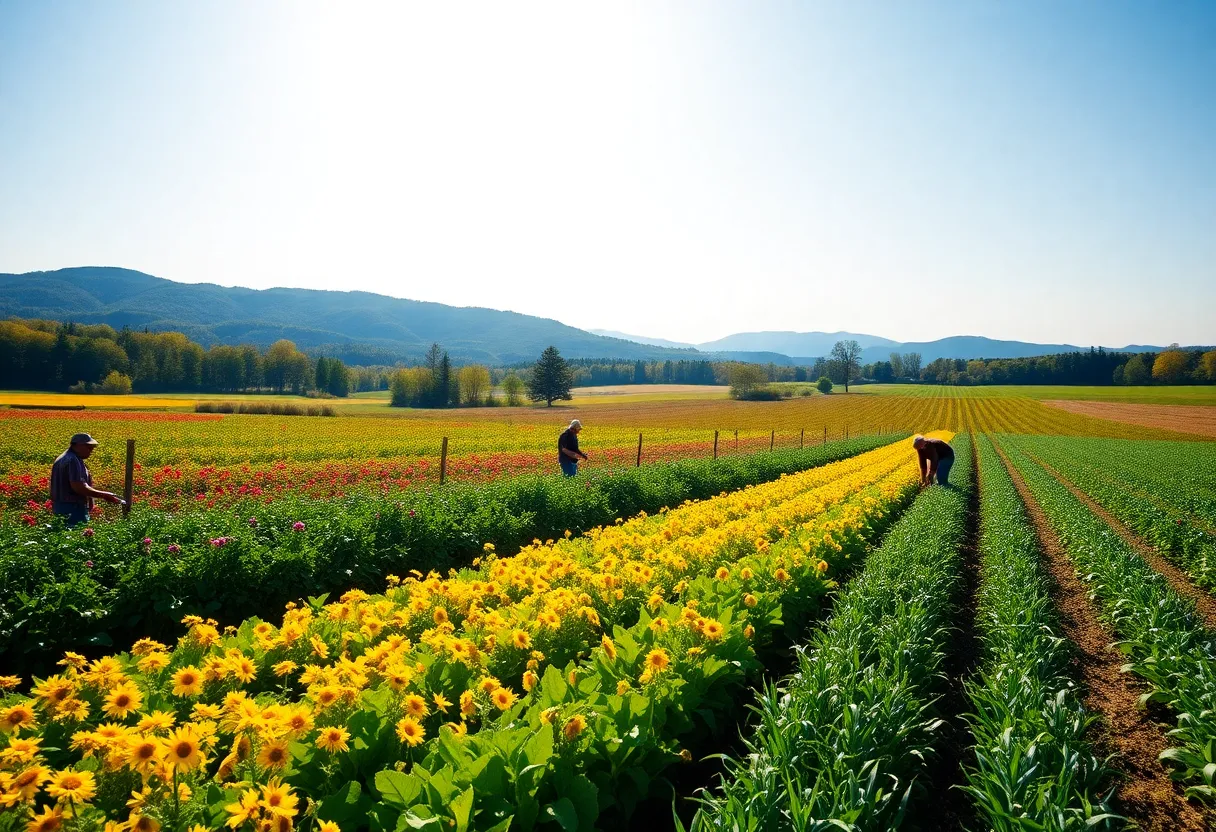News Summary
Farmers and agricultural lobbyists in Massachusetts gather to support a new bill aimed at enhancing farm resilience and addressing challenges in food production. The proposed legislation, led by Senator Jo Comerford and Representative Natalie Blais, emphasizes emergency preparedness, land preservation, and agritourism. The Food Security Infrastructure Grant Program aims to financially assist farmers, while educational initiatives will ensure future farmers are well-trained. Stakeholders advocate for the bill as a transformative opportunity for the agricultural sector to adapt and thrive amidst contemporary challenges.
Boston, Massachusetts – Farmers and agricultural lobbyists gathered in Boston to advocate for legislation aimed at enhancing the resilience of agriculture within the state. The proposed bill, known as “An act fostering agricultural resilience in Massachusetts,” is spearheaded by Senator Jo Comerford and Representative Natalie Blais. This legislation seeks to address contemporary challenges faced by the farming community and bolster the state’s food production system.
The key feature of the proposed farm bill requires the Massachusetts Emergency Management Agency (MEMA) to develop an emergency preparedness plan that incorporates agriculture and food production. By doing so, the bill aims to ensure that agricultural sectors are adequately supported during crises.
Additionally, the farm bill seeks to preserve agricultural land and improve land use regulation. A crucial component of the legislation is the establishment of the Food Security Infrastructure Grant Program, which provides essential financial assistance to farms across the state. This initiative is expected to play a significant role in supporting farmers economically and enhancing their capacity to produce food locally.
Moreover, the legislation proposes to prohibit zoning bylaws that “unreasonably regulate agritourism,” an important aspect of farm diversification that can bolster revenue for farmers. Advocates believe that easing these regulations will provide farmers with increased opportunities to engage in tourism-related activities, ultimately benefiting both the farmers and the local economy.
Proponents of the bill describe it as transformative, highlighting its potential to address pressing issues such as rising equipment costs, the necessity for training future farmers, and the vital task of preserving farmland in Massachusetts. The legislation is also positioned to strengthen local food systems amid disruptions in global supply chains, affirming the need for a robust local infrastructure to meet food demands.
Various stakeholders emphasize the significance of the bill in terms of financial benefits for small businesses linked to agriculture. The Massachusetts Farm Bureau Federation noted that promoting agritourism allows farmers to diversify their income streams while fostering community engagement and enhancing food security. It is pointed out that currently, agriculture utilizes 10% of Massachusetts land and contributes 13% to the state’s GDP, highlighting its crucial role in the economy.
Additionally, educational prospects in agriculture are set to improve with the proposed legislation. The bill aims to support agricultural education, ensuring that future farmers receive the necessary training and equipment to succeed. This focus on education is expected to yield long-term benefits for the farming community, fostering a new generation of skilled workers.
While the proposal has received positive feedback, some stakeholders have suggested further enhancements, including strategies for improved collaboration among farmers and streamlined transportation for agricultural goods. This feedback will be vital as the Joint Committee on Agriculture and Fisheries reviews the proposed legislation’s goals and impacts.
Farmers have been encouraged to participate in the legislative process by submitting written testimony to the appropriate committees, allowing them to voice their concerns and suggestions regarding the bill.
As the Massachusetts agricultural community navigates various challenges, the advocacy for this farm bill reflects a unified push toward advancing agricultural resilience, ensuring that local farms can prosper while providing fresh, local food to communities.
Deeper Dive: News & Info About This Topic
- GazetteNet: Agricultural Resilience for Massachusetts Farmers
- WWLP: Community Fridges Support for Farmers in Bay State
- MassLive: Bill Belichick Visits Mass Farms
- CBS News: Billerica Griggs Farm Tax Refund
- Moneywise: Massachusetts Farmer Wins Tax Battle
- Wikipedia: Agriculture in Massachusetts
- Google Search: Massachusetts agriculture
- Google Scholar: Massachusetts farm legislation
- Encyclopedia Britannica: Agriculture
- Google News: Massachusetts farms

Author: STAFF HERE BOSTON WRITER
The BOSTON STAFF WRITER represents the experienced team at HEREBoston.com, your go-to source for actionable local news and information in Boston, Suffolk County, and beyond. Specializing in "news you can use," we cover essential topics like product reviews for personal and business needs, local business directories, politics, real estate trends, neighborhood insights, and state news affecting the area—with deep expertise drawn from years of dedicated reporting and strong community input, including local press releases and business updates. We deliver top reporting on high-value events such as Boston Marathon, Head of the Charles Regatta, and Boston Harborfest. Our coverage extends to key organizations like the Greater Boston Chamber of Commerce and Associated Industries of Massachusetts, plus leading businesses in finance, biotech, and insurance that power the local economy such as Fidelity Investments, Biogen, and Liberty Mutual Insurance. As part of the broader HERE network, we provide comprehensive, credible insights into Massachusetts's dynamic landscape.





